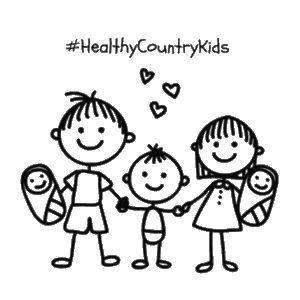Developing Brains and Bodies (PDF Version)
Did you know that the first 3 years of your baby’s life are the most important for brain development? At birth your baby’s brain weighs 400g, but by the time they have reached 3 years it’s 1.1kg. Your baby is also learning a lot as you spend time together every day. Her brain is growing and developing as she sees, hears and touches the world around her.
Things to know:
The early experiences your baby has will help shape the adult they will become.
The brain is the only part of baby that isn’t fully developed at birth.
The human brain has 3 main parts:
Brain stem and cerebellum – these connect the brain to the spinal cord and control the body’s breathing, heart rate, blood pressure, balance and reflexes.
Limbic system – this sits on top of the brain stem and looks after many different functions including emotion, thirst, hunger, memory, learning, and the body’s daily rhythms.
Cerebral cortex – This is the largest part of the brain and consists of a left and right hemisphere. It sits on top of the Limbic system. It contains four lobes – vision, hearing, memory and self-regulation and one for bodily functions like pain, heat and cold.
Language and brain development
At birth, your baby is ready for some form of communication. Language is important for a baby’s development. It is used to communicate, build relationships, express emotions and learn. When your baby cries and you respond in a sensitive way they will then learn the world around is a safe place. From about 2 months your baby may be babbling or cooing and you can respond with copying their noises or talking back to them with different noises or sounds.
Play and Brain development
Play is vital for developing your little one’s brain. This is how they learn about the world around them. Being cuddled, talked to and going to new places will all help with your baby’s brain development. Spending time reading books or singing songs will help babies learn about words, sounds and language. You are your baby’s favourite toy through play and your baby’s first teacher that will support their learning and development.
Tummy Time
Tummy Time helps build up baby’s back, neck and upper body muscles. These body muscles will start to strengthen and tummy time will get easier for them. These muscles are necessary as they begin to learn new skills such as reaching, rolling, sitting up and crawling. Some babies dislike tummy time, but try to do it little and often during the day. Try having your baby lay on your chest they will love to see your face and hear your voice. As their muscles begin to strengthen try laying on the floor with your baby, making sure their elbows and hands are in front.
Want to know more?
If you would like to talk to someone about your baby’s brain development,
Contact Ngala’s Parenting Line or Country Families team by calling 9368 9368.
Links to resources:
Baby Brain Map – Zero to Three
Tummy Time for Babies – in pictures
For parenting support and information contact [email protected] or Ngala Parenting Line
Country Dad’s SMS Service is provided by Ngala and supported by WA Country Health.


